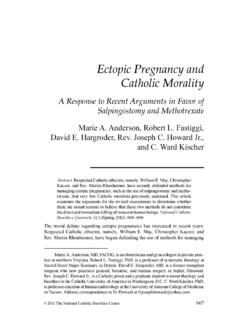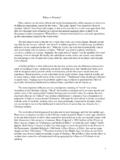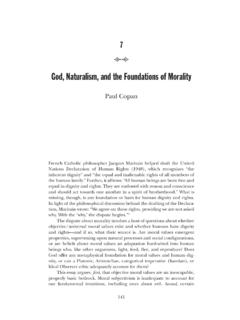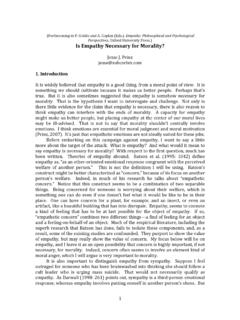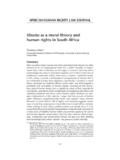Transcription of MORALITY IN MACHIAVELLI, HOBBES AND LOCKE: A …
1 FLSF (Felsefe ve Sosyal Bilimler Dergisi), 2013 Bahar, say : 15, s. 25-40 ISSN 1306-9535, MORALITY IN machiavelli , HOBBES AND LOCKE: A COMPARATIVE ANALYSIS Funda GEN O LU ONBA I ABSTRACT This study moves from the contention that MORALITY is a political concept par excellence. In other words, this study is built on the presumption that social and political analysis of what is goes hand in hand with a concern with what ought to be, and that when at stake are the matters of socio-political life, the two are interwoven. This conviction to the importance of MORALITY for political analysis, in turn, fuels the curiosity about the different ways in which this tense relationship has been handled by the important figures of political thought. It is out of this curiosity that this article focuses on the views of Niccolo machiavelli , Thomas HOBBES and John Locke, who are usually listed in chronological order as the founders of modern political thought, on the question of MORALITY or more specifically on the relationship between politics and MORALITY .
2 The comparative analysis in this study shows that these three important figures do not have much in common in terms of their conception of MORALITY , that is, in terms of the ways they chose to deal with this question and in terms of their particular propositions as to what is or is not to be accepted as moral. However, one thing is common: the issue of MORALITY is at the very center of their theoretical frameworks interconnected with their arguments regarding other crucial concepts of their analyses, like for instance, human nature, state, individual/community relationship, authority, and power. Keywords: Niccolo machiavelli , Thomas HOBBES , John Locke, MORALITY , MORALITY and politics. ( machiavelli , HOBBES ve Locke ta Ahlak: Kar la t rmal Bir nceleme) ZET Bu al man n k noktas n ahlak kavram n n politik bir kavram oldu u nermesi olu turmaktad r.
3 Di er bir ifadeyle, toplumsal ve siyasal ya ama dair meseleler s z konusu oldu unda nedir sorusuna verilen yan tlarla nas l olmal d r sorusuna verilen yan tlar i i e ge mi durumdad r. Toplumsal ve siyasal olaylar kar s nda bu soru zerine in a edilen bir ilgi/merak/dikkat/kayg asla k msenesi bir ey olmamakla birlikte, ne olmal /nas l olmal sorusunun nemsiz/de ersiz/anlams z bir soru oldu u sonucuna yol a mamal d r. Klasik siyasal d ncenin en nemli ve etkili isimlerinden olan, hatta o u zaman modern siyasi d ncenin kurucular olarak s rayla isimleri zikredilen, Niccolo machiavelli , Thomas HOBBES ve John Locke un eserleri incelendi inde de ahlak konusunun son derece merkezi bir konumda oldu u g r lmektedir. Bu konumun ortaya konulmas bu makalenin ilk amac olarak say labilir.
4 Bu politik d n r n ahlaki sorular ele al bi imleri ve/ya da ne olmal sorusuna verdikleri yan tlar bak m ndan farkl l klar , benzerliklerinden daha fazla oldu u ne s r lebilir. Ancak, hepsinin ortak noktas , ahlak konusuna yakla mlar n n, zerine yazd klar di er siyasi kavramlar (devlet, birey, otorite, insan do as , iktidar gibi) nas l d nd kleriyle do rudan ilintili olmas d r. Ahlak konusunun siyasal d ncenin en nemli isimleri a s ndan nemini ortaya koyman n yan s ra, bu makale bu d n r n konuya yakla mlar n kar la t rmal bir bak a s yla ele almaktad r. Anahtar Kelimeler: Niccolo machiavelli , Thomas HOBBES , John Locke, ahlak, ahlak-siyaset ili kisi Assist. Prof. Dr. Ba kent University Department of Political Science and International Relations.
5 MORALITY in machiavelli , HOBBES and Locke: A Comparative Analysis 26 Introduction This study moves from the contention that MORALITY is a political concept par excellence. In other words, this study is built on the presumption that social and political analysis of what is goes hand in hand with a concern with what ought to be, and that when at stake are the matters of socio-political life, the two are interwoven. This conviction to the importance of MORALITY for political analysis, in turn, fuels the curiosity about the different ways in which this tense relationship has been handled by the important figures of political thought. It is out of this curiosity that this article focuses on the views of Niccolo machiavelli , Thomas HOBBES and John Locke, who are usually listed in chronological order as the founders of modern political thought, on the question of MORALITY or more specifically on the relationship between politics and MORALITY .
6 The vast literature dedicated to an analysis of the works of these great thinkers is indeed an indication of the fact that for those who are dealing virtually with the same questions as they did some hundred years ago, their writings are anything but irrelevant. This being its point of departure, this article aims at a comparative analysis of the different conceptions of MORALITY in machiavelli , HOBBES and Locke. Through this analysis, it tries, in the first place, to show the different ways in which they tackled with this issue as well as the interesting parallelisms between them. More than that, however, it tries to demonstrate the centrality of MORALITY in their political thought by delineating the connections between conceptualization of MORALITY and other central political themes such as the state, human nature, power and individual/community relationship.
7 machiavelli : 'Moral', 'Immoral' or 'Amoral'? There is a widespread agreement today that machiavelli stands outside the main tradition of European political thought. He is different in the way he thinks and talks about society from great medieval thinkers and from the great thinkers of the sixteenth and seventeenth centuries. As Plamenatz points out, both the Medieval political theory, and the political theory of the sixteenth and seventeenth centuries were rooted in theology and hence the main question those thinkers dealt with was that of 'What is the essential nature of man?' which was equivalent to ask 'What are God's intentions/purposes for him?'1 In machiavelli s conception on the other hand, man is self-assertive. He lives not to seek God s favor or to serve some larger purpose than human purpose, but to satisfy himself; he seeks to make himself As is known, Western civilization, up to modernity, developed within a moral environment shaped by 1 John Plamenatz, Man and Society: Political and Social Theories From machiavelli to Marx, revised by Plamenatz and , (London and New York: Addison Wesley Longman, 1992) 2 Ibid.
8 Funda GEN O LU ONBA I 27 Christianity and its ethics. Different from this tradition, machiavelli builds his MORALITY on the claim that individuals can never escape worldly affairs and therefore tries to provide them with tools for acting in always changing times. His MORALITY is a this-worldly MORALITY ; its rules are centred on individual and his actions. This is the radical newness of Machiavellian MORALITY for those times. Althusser highlights this novelty as the most startling aspect of machiavelli s work: machiavelli is the theorist of something new solely because he is the theorist of beginnings of the The novelty of the beginning thus grips us for two reasons: because of the contrast between the after and the before, the new and the old.
9 And because of their opposition and their impact, their If he is gripping, it is not simply because he is new, but because he represents a machiavelli himself writes on the first page of Discourses: Although the envious nature of men has always made it no less perilous to discover new methods and institutions than to search for unknown lands and nevertheless I have resolved to enter upon a path still untrodden, though it may bring me distress and He explains the originality of his work as his effort to concentrate on what really happens rather than on theories or speculations;5 and he criticizes the former views for not following the same path. He accuses them of being interested in imagining many Republics and Princedoms that have never been seen or known to exist in reality because he believes that how men live is so different from how they should live.
10 6 The novelty of machiavelli s work is generally viewed as an outcome of the special and extraordinary conjunction of events of his time. machiavelli was born in Florence in 1469 and died there in 1527. So, he was at the very heart of Renaissance, both geographically and temporally. Renaissance, as a bridge between middle ages and modern times, is characterized by an intellectual and spiritual renewal on the one hand, and religious and political turmoil on the other hand. Both seem to have a formative influence on his thought. What make this period so progressive from today s point of view are the radical changes in the social and material conditions of living such as the development of trade, the rise of a capitalist class and the cities, the early stages of capitalist mode of production and the loosening of the ties of feudalism.
